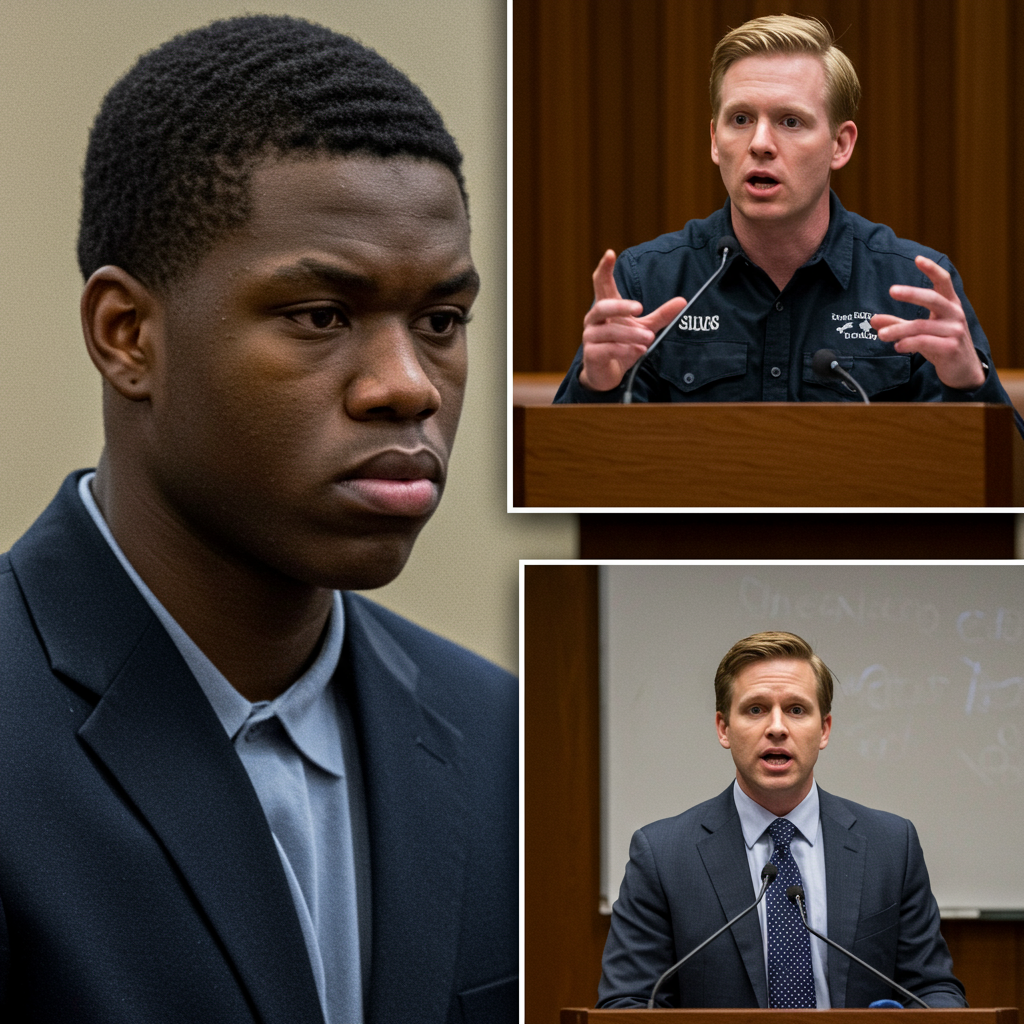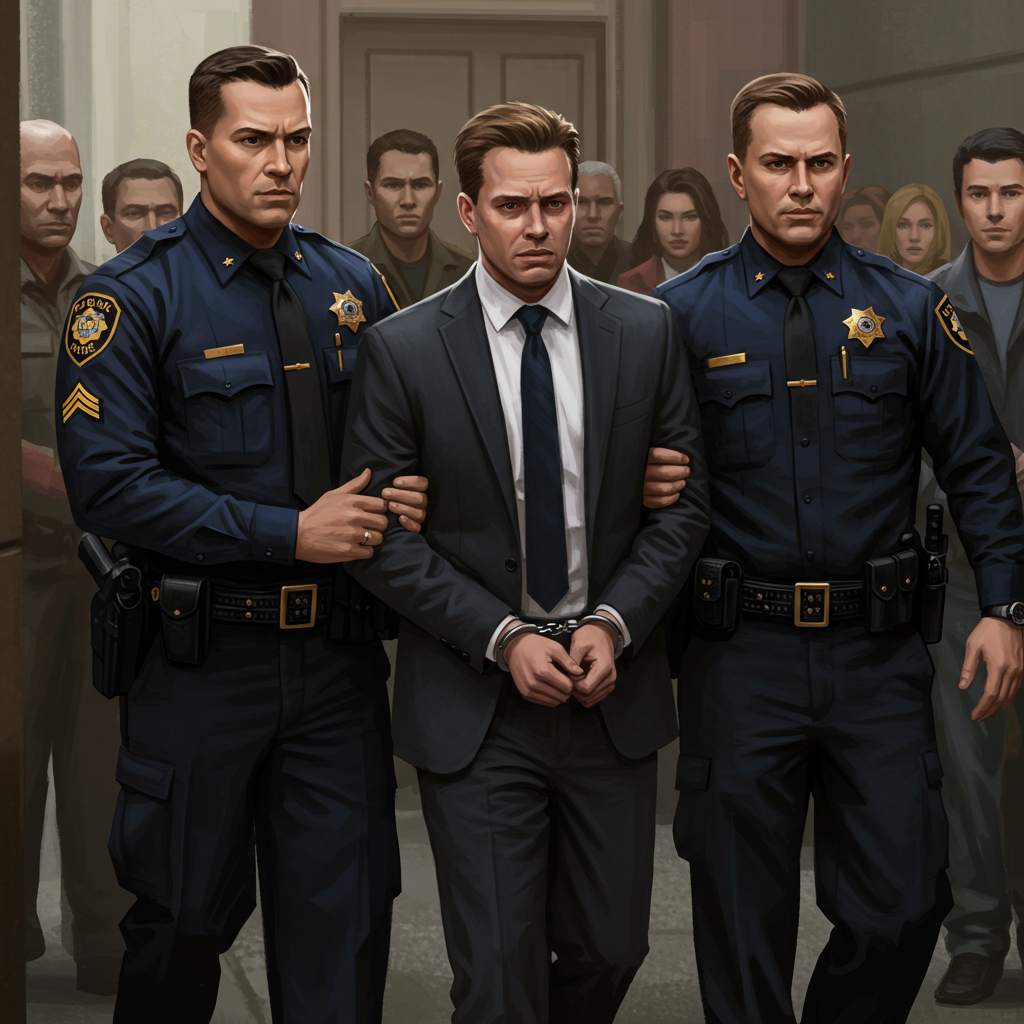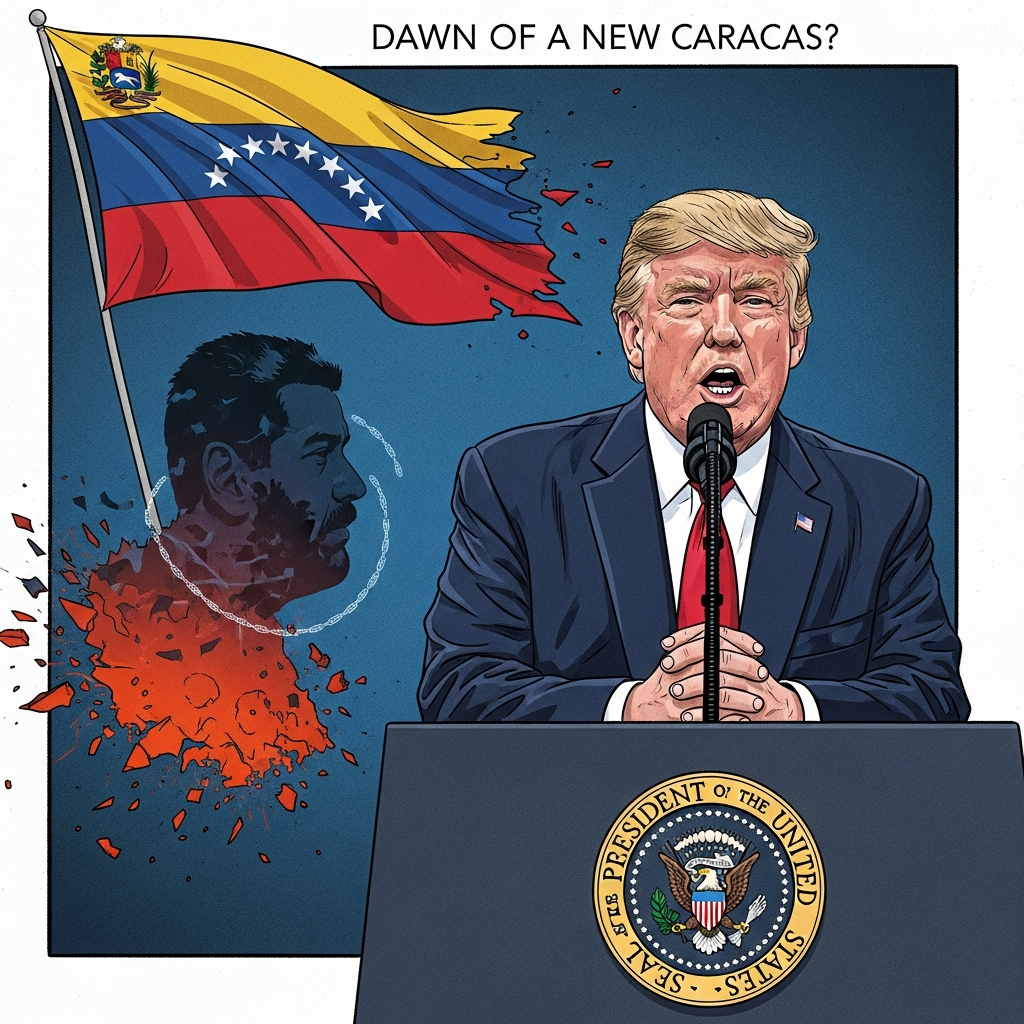The nation is gripped by the unfolding legal drama surrounding the Charlie Kirk murder case, as Tyler Robinson, 22, faces aggravated murder charges and the distinct possibility of the death penalty. Conservative activist Charlie Kirk was fatally shot while speaking at Utah Valley University on September 10, igniting a fervent investigation and sparking widespread political debate. This comprehensive report delves into the shocking details of the charges, the alleged motive, the meticulous evidence gathered, and the broader implications of this tragic event.
Aggravated Murder Charges and the Pursuit of Justice
Utah County Attorney Jeff Gray has formally charged Tyler Robinson with aggravated murder, a felony discharge of a firearm causing serious bodily injury, two counts of obstruction of justice, two counts of witness tampering, and committing a violent offense in the presence of a child. These severe charges reflect the premeditated nature of the alleged crime and the alleged attempts to cover it up. Prosecutors, led by Gray, have made it clear they intend to seek the death penalty against Robinson, a decision Gray stated he reached independently based solely on the available evidence and the heinous nature of the crime. Robinson is currently held without bail in Utah County Jail, where he is under “special watch” for mental health evaluation as standard protocol for such high-stakes cases. His first virtual court appearance was scheduled for September 16, where he was informed of the charges and ensured legal representation.
Unveiling the Alleged Motive and Premeditation
Investigators and prosecutors have outlined a chilling narrative of premeditation and motive in the Tyler Robinson charges. Robinson allegedly confessed to his roommate via text message, stating he had been planning Kirk’s murder for “a bit over a week.” A chilling note found under his roommate’s keyboard further cemented this intent: “I had the opportunity to take out Charlie Kirk, and I’m going to take it.” Robinson’s statements to his parents and in Discord messages post-shooting reiterated his involvement. He reportedly told his parents Kirk “spreads too much hate” and that “there’s too much evil in the guy.”
Political Shift and Personal Life
The alleged motive appears deeply rooted in Robinson’s personal and political evolution. His mother told investigators that over the past year, Robinson had become “more political and had started to lean more to the left,” embracing “pro-gay and trans-rights oriented” views. This shift led to frequent discussions and disagreements with his father, who held “very different political views.” Robinson was dating his roommate, a biological male who was transitioning genders, a relationship that also contributed to these family dynamics. Prior to the shooting, Robinson reportedly mocked Kirk’s choice of Utah Valley University as a “stupid venue” and “accused Kirk of spreading hate,” according to his mother. FBI Director Kash Patel also noted that Robinson subscribed to “left-wing ideology” and that his actions were based on political beliefs.
The “Meme” Factor and Planning
Adding a bizarre layer to the motive, prosecutors revealed that Robinson allegedly engraved ammunition rounds with internet meme references and anti-fascist slogans. These included “notices bulge uwu,” a “Helldivers 2” reference, an Italian anti-fascist song lyric (“Oh bella ciao, bella ciao, bella ciao ciao ciao”), and “If you read this, you are gay LMAO.” Robinson later dismissed these etchings as “mostly a big meme” to his roommate, suggesting an element of dark humor or trolling mixed with his alleged political grievances. The execution of the shooting was precise: Kirk was struck by a single bullet fired from a rooftop approximately 200 yards away while answering a question about mass shootings by transgender individuals. The bullet’s trajectory narrowly missed several bystanders and children visible near the stage.
Comprehensive Evidence and the Path to Capture
The Charlie Kirk murder case investigation quickly amassed a substantial body of evidence linking Tyler Robinson to the crime. This includes DNA, surveillance footage, incriminating text messages, and a confession note. The rapid identification and apprehension of Robinson highlight the diligent work of law enforcement.
Forensic Details and Confessions
Key forensic evidence includes DNA consistent with Robinson’s found on the trigger of the rifle believed to be the murder weapon, on a towel wrapped around it, and on a screwdriver recovered from the rooftop where the shot was fired. Police also discovered several targets with bullet holes at Robinson’s home, indicating prior firearm practice. The weapon itself, a Mauser 98 .30-06 bolt-action rifle with a $2,000 scope, belonged to Robinson’s grandfather. In his text messages, Robinson expressed concern about returning “grandpa’s rifle” after the incident.
Crucially, after the shooting, Robinson engaged in extensive communication with his roommate. He confessed to the attack, detailed how he stashed his rifle, and expressed regret for involving his roommate, hoping to keep his actions secret. He also instructed his roommate to delete these incriminating texts and to remain silent if questioned by police, leading to the witness tampering charges. This roommate eventually provided the critical text messages to law enforcement, a turning point in the investigation. Confessions also emerged from a Discord chat group, where an account allegedly belonging to Robinson messaged friends, stating, “Hey guys, I have bad news for you all… It was me at UVU yesterday. im sorry for all of this.” He did not deny questions from friends who recognized him in FBI images and even joked about disposing of a “manifesto and exact copy rifle.”
From Surveillance to Surrender
Robinson’s capture came two days after the shooting, following the release of surveillance photos and video by law enforcement. His parents played a pivotal role: his mother recognized him from the images, prompting his father to confront him. After a conversation where Robinson implied he was the shooter and even contemplated suicide, his parents, along with a family friend who is a retired deputy sheriff, convinced him to turn himself in to the Washington County Sheriff’s Office. Robinson allegedly told his family he wanted to “end it” rather than go to jail and admitted to disposing of clothes in different areas to hide evidence. DNA evidence also linked Robinson to the crime scene, further solidifying the case.
FBI’s Role and Associated Controversies
The Federal Bureau of Investigation (FBI), under Director Kash Patel, played a significant role in the Charlie Kirk shooting investigation. The bureau deployed specialized teams, collected over 16,000 tips and digital media submissions, and conducted extensive interviews and cellphone analysis. Patel defended the FBI’s handling of the probe, asserting that his directive to release enhanced photos and video ultimately led to Robinson’s identification. The FBI is also investigating other users in a Discord chat group associated with Robinson, with Patel stating there are “a lot more than 20” individuals being “run down” to identify any broader allegations of violence. Discord, however, has denied finding evidence that Robinson planned the incident or promoted violence on its platform.
Director Patel’s Testimony and Scrutiny
FBI Director Kash Patel himself has faced considerable scrutiny regarding his leadership and handling of the Kirk investigation. During a Senate Judiciary Committee hearing, he was questioned about a contradictory social media post he made hours after the shooting, claiming a “subject” was in custody before Robinson was actually arrested. Patel admitted he “could have been more careful in my verbiage” but maintained he was being transparent. He engaged in heated exchanges with Senators Adam Schiff and Cory Booker, defending the FBI’s actions and accusing them of political posturing. Critics, including some former FBI employees and allies of President Donald Trump, have questioned Patel’s competency and leadership style, particularly after he had to walk back his initial “subject in custody” claim.
Broader Political Reactions and Public Discourse
The assassination of Charlie Kirk has sent ripples through the American political landscape, intensifying debates on political violence, free speech, and polarization. Utah County Attorney Jeff Gray characterized Kirk’s murder as an “American tragedy,” an “offense against the state,” and an attack on the “free exchange of ideas,” which he called “the bedrock of our democratic republic.”
Political figures from across the spectrum have weighed in. President Donald Trump, while echoing calls for non-violence, asserted that “most of the violence is on the left,” a claim countered by Senator Amy Klobuchar, who cited studies indicating right-leaning extremists were responsible for significantly more politically motivated killings. House Speaker Mike Johnson called for leaders to “turn down the temperature” but declined to criticize Trump’s rhetoric when pressed. Oklahoma State Superintendent Ryan Walters faced defiance from several schools for directing a moment of silence to honor Kirk, with districts citing existing policies and potential disruption. The incident also sparked discussions about “hate speech,” with Attorney General Pam Bondi distinguishing between protected speech and threats of violence, while Kirk himself had historically argued that “hate speech does not exist legally in America.”
The False Confession and its Fallout
Adding another layer of complexity to the initial stages of the investigation was the false confession of George Zinn, 71, who was present at the event. Moments after the shooting, Zinn was seen yelling that he had shot Charlie Kirk, allegedly to hinder the police response and allow the actual suspect to flee. Zinn was taken into custody and subsequently charged with obstruction of justice. While officials do not believe he collaborated with Robinson, Zinn also faces unrelated charges for possession of child sex abuse material after police searched his phone during an FBI interview. His actions initially diverted resources and attention, complicating the urgent search for the real shooter.
Frequently Asked Questions
What formal charges does Tyler Robinson face in the Charlie Kirk murder case?
Tyler Robinson faces a comprehensive array of severe charges. These include aggravated murder, two counts of obstruction of justice, two counts of witness tampering, felony discharge of a firearm causing serious bodily injury, and commission of a violent offense in the presence of a child. Utah County Attorney Jeff Gray has also announced his intent to seek the death penalty, citing aggravating factors related to the premeditated nature of the crime and its commission in front of bystanders, including children.
Where did the investigation into the Charlie Kirk shooting lead to Robinson’s identification?
The investigation into the Charlie Kirk shooting leveraged various crucial pieces of evidence. Law enforcement released surveillance photos and video footage of the suspect, which proved instrumental. Tyler Robinson’s own parents recognized him from these images, leading to a confrontation at their home. Subsequently, Robinson, accompanied by his parents and a family friend (a retired deputy sheriff), turned himself in to the Washington County Sheriff’s Office. DNA evidence from the crime scene, including the rifle and other items, further corroborated his involvement.
What is the significance of the alleged motive in the Tyler Robinson case?
The alleged motive, as outlined by prosecutors and Robinson’s family, highlights a complex interplay of personal and political factors. Robinson’s shift to more left-leaning, pro-LGBTQ+ views, his relationship with his transgender roommate, and his perceived “hate” from Charlie Kirk appear to be central. This case underscores broader national discussions about political polarization, the interpretation of “hate speech,” and the alarming rise of politically motivated violence, prompting reflection on how ideological differences can escalate to tragic consequences.
Conclusion
The Charlie Kirk murder case stands as a stark reminder of the escalating tensions in modern political discourse. Tyler Robinson’s formal charges, the pursuit of the death penalty, and the chilling details of his alleged premeditation and motive paint a grim picture. As the legal process unfolds in Utah County, the nation watches, grappling with questions of justice, free speech, and the future of civil debate in a deeply divided society. The extensive evidence, from DNA to digital confessions, underscores the relentless efforts of law enforcement to bring accountability, while the broader political reactions reflect the profound impact of this “American tragedy.”




